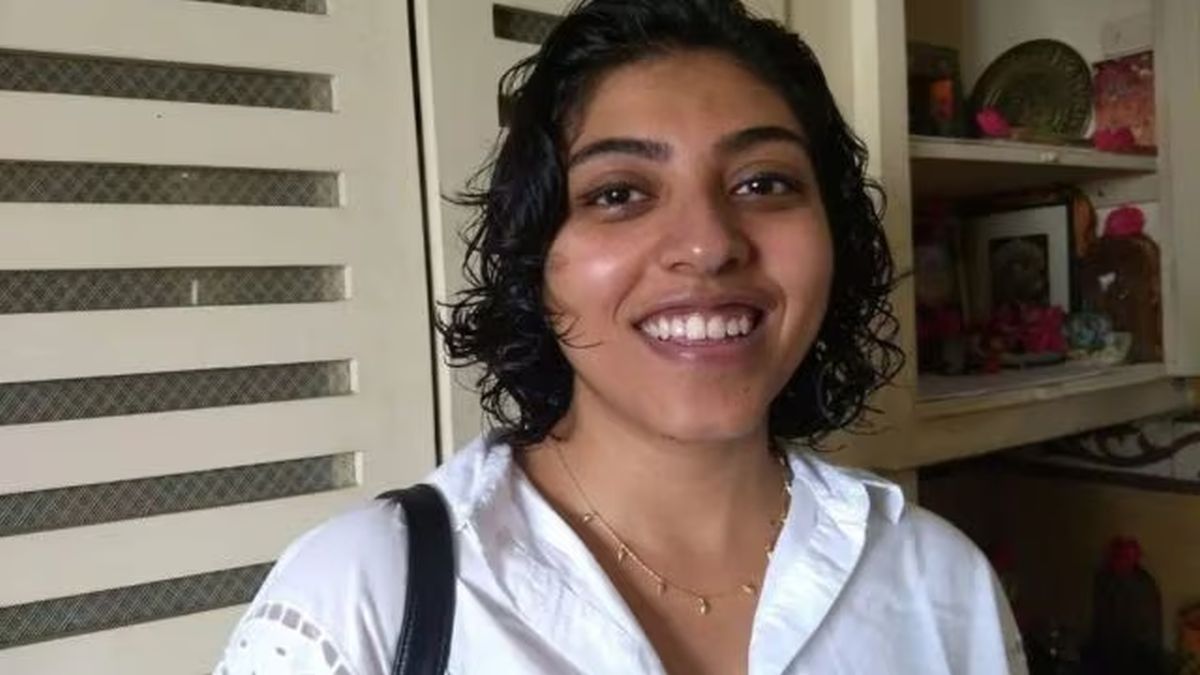Donald Trump’s crackdown on pro-Palestine Columbia University students continues. The federal immigration authorities, who arrested Mahmoud Khalil, a graduate student and Palestinian activist at the varsity, had another target: Ranjani Srinivasan, a student from India.
The 37-year-old self-deported from the United States, using the CBP (Customs and Border Protection Home app, after her student visa was revoked over pro-Palestine protests. She fled the country, boarding a flight from New York’s LaGuardia Airport to Canada.
Why was Ranjani Srinivasan’s student visa revoked?
Ranjani Srinivasan is a Fulbright scholar pursuing a doctoral degree in urban planning at Columbia University. She has been in the US since 2016 when she enrolled at Harvard University as a graduate student.
As part of the crackdown against pro-Palestine students, the US Department of State cancelled her visa on March 5, citing concerns related to her involvement in activities supporting Hamas. She received an email from the US consulate in Chennai informing her about the revocation which stated that “information has come to light” that might make her ineligible.
Confused, she reached out to Columbia’s international student office, where she was told that as long as she stayed in the US, she could continue studying. Two days later, on March 7, she was on a call with a university official, discussing her visa status.
The scholar came under scrutiny because of an incident last year when pro-Palestine protests gripped Columbia University. When protesters clashed with the police, she was arrested near the university grounds. She was not participating in the demonstration but was returning after spending the day with friends when she found herself in the middle of the commotion. She was detained along with close to 100 others.
“I was just trying to get back to my apartment,” Srinivasan was quoted as saying by The New York Times (NYT), distancing herself from the pro-Palestine protests . While she was issued two summonses – for obstructing traffic and refusing to disperse – her case was dismissed and did not result in a criminal record.
Srinivasan thought it was all behind her and did not disclose the summonses when she renewed her student visa as the case was dropped. Little did she know that months later, the Immigration and Customs Enforcement (ICE) would come after her.
According to Srinivasan’s attorneys, while she attended a handful of protests, she did not participate in a protest last year in which students occupied Hamilton Hall. On social media, she shared or liked posts on human rights violations in Gaza. In 2023, she signed an open letter published by the Society of Architectural Historians in support of “Palestinian liberation”.
The Trump administration said it had revoked the visa of Ranjani Srinivasan, an Indian citizen and doctoral student at Columbia, for “advocating for violence and terrorism”. The Department of Homeland Security issued a statement that labelled her a terrorist sympathiser who was “involved in activities supporting Hamas, a terrorist organisation.”
Officials with Homeland Security told NYT that when Srinivasan renewed her visa last year, she failed to disclose two court summonses related to Columbia’s campus protests.
How Ranjani Srinivasan dodged immigration authorities
On 7 March, three federal immigration agents arrived at Srinivasan’s apartment which is not on Columbia campus, looking for the student whose visa was no longer valid. However, her roommate, also a student at the university, refused to open the door as she spoke to the agents who identified themselves as “police”.
The officials returned the next night, hours before Mahmoud Khalil was detained by immigration authorities. However, Srinivasan was not home then; she had decided to abandon the accommodation.
How Ranjani Srinivasan fled the US
The student received an email from Columbia saying that Homeland Security had informed the university about her revoked visa. Her enrollment at Columbia had been withdrawn and she was asked to vacate the student housing, the email said, according to the NYT report. Signed by the university’s international student office, the email asked her to meet Homeland Security.
The immigration agents came knocking on Srinivasan’s door again last Thursday (March 13). This time they reportedly had a judicial warrant. However, by now she had left the country.
The terrified student packed her belongings and left her cat with a friend. Srinivasan used the CBP app to self-deport . She boarded a flight at LaGuardia Airport and fled to Canada.
Kristi Noem, the Homeland Security secretary, posted a surveillance video of Srinivasan, at the airport, rushing with her suitcase.
It is a privilege to be granted a visa to live & study in the United States of America. When you advocate for violence and terrorism that privilege should be revoked and you should not be in this country,” she wrote on X.
“I’m glad to see one of the Columbia University terrorist sympathizers use the CBP Home app to self-deport,” Noem wrote.
What next for Ranjani Srinivasan?
In an interview with NYT, Srinivasan said, “The atmosphere seemed so volatile and dangerous… So I just made a quick decision.”
The student says that she is not sure whether she will be able to complete the degree that she has been working for over the past five years. She was expected to graduate this year.
She also claims that the university did not explain the revocation of her enrollment.
Columbia University has not made any statement on Srinivasan.
“Having my visa revoked and then losing my student status has upended my life and future — not because of any wrongdoing, but because I exercised my right to free speech,” Srinivasan said in a statement to CNN.
It is not clear if Srinivasan will return to India or what her next steps will be. For now, she faces an uncertain future.
With inputs from agencies
)